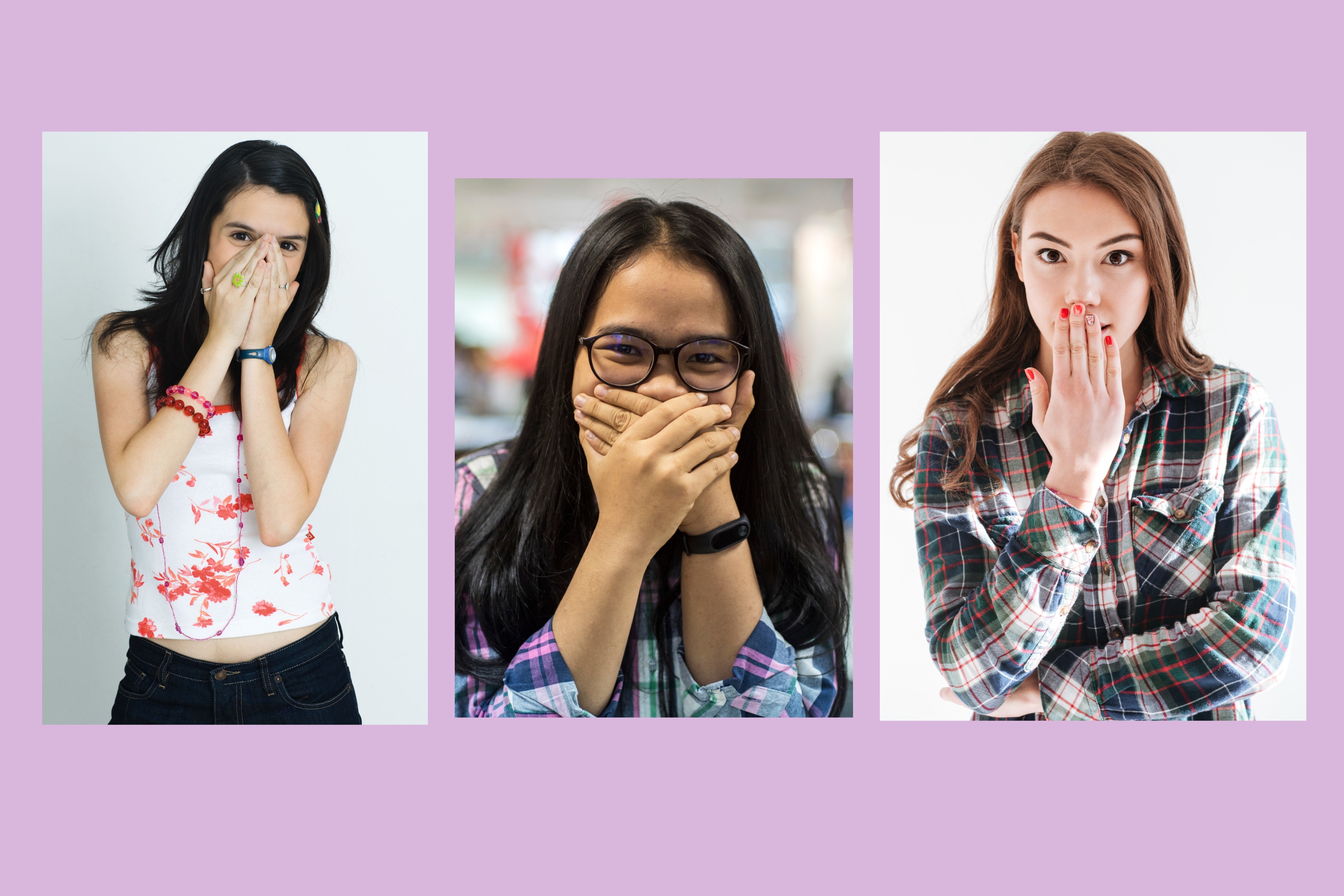
Parents have been left confused by a new 'nose covering' pose teenagers are pulling in photos - we explain why they're doing it.
Getting your teenager to leave their room can be a difficult task, leaving many parents to wonder why they won't socialise with the family. But when you've finally broken through the barrier, easing the worry parents feel when teens won't talk to you, capturing the moment with a family photo might be ruined by the new 'nose covering' trend taking hold amongst the generation.
The pose, pulled by teens in family photos across the internet, sees them placing a flat, open palm, or both of their palms, in front of their nose, covering the majority of their face so they can't be seen.
The odd pose has led many to wonder it it's a secret signal, or some new take on the peace sign or 'rocker' fingers that teens have long pulled out to add some fun into pictures. But a parenting expert has revealed that it's actually something a lot sadder fuelling the trend.
According to Dr. Daniel Glazer, a clinical psychologist and founder of the US Therapy Rooms, teens are using their hands to cover their face, not wishing to be in the photos due to self-consciousness, but also not wishing to upset their parents by refusing to have their photo taken at all.
"This is certainly a phenomenon that can baffle and frustrate many parents, but one that makes perfect sense when we consider the developmental kaleidoscope unfolding during these formative years," he told us at GoodToKnow.
"For some teens and tweens, having their photo taken isn't just an innocent snapshot. It's a complex psychological interchange loaded with unconscious fears, vulnerabilities, and the intense self-consciousness that comes with metamorphosing identities.
"This is a period where bodies are transfiguring, social dynamics are shifting, and there's an acute hypersensitivity to peer judgment. The mere idea of eternally capturing just one of those passing, awkward adolescent selves on film can feel like a really threatening exposure," he added.
Claire Law, a teacher, relational psychotherapist, and the senior contributor at Holly Dog Blog adds that, through her work, she's learnt that many teens don't enjoy having their photo taken due to the 'pressure' to look perfect.
"In my sessions with young people, I often hear about the pressure to look perfect, driven by the idealised images they see online. This unrealistic standard can make anyone feel inadequate, especially when a photo doesn't capture them in the 'right' way. They might compare themselves unfavourably to their friends or celebrities, leading to a reluctance to be photographed at all."
But it's not just about appearance, Law says. "For some, having their photo taken can feel intrusive. It's like their personal space is being invaded. This is particularly true for those who are more introverted or who value their privacy highly. Being in the spotlight, even for a moment, can be overwhelming."
So, if you spot your teen 'nose covering' in your holiday snaps, try not to make a big deal out of it and embarrass them further. Instead, Dr Glazer has a tip. He explained, "Forced posed photos often backfire, breeding resentment. Instead, celebrate their personhoods through casual candids that authentically capture their unfolding essences, not suppress them into contrived facades.
"It's a subtle reframing but one that honours adolescents' core needs for autonomy and self-definition as they navigate identity awakenings."
Also make sure to check in with your teen and open up a conversation about what they see on social media, asking them about any online activity that may be affecting their mental health or body image.
Parenting a teen can be a minefield, with their use of confusing teenage slang (which we've broken down and explained) and the way they yell ‘You don’t understand me!’ in arguments, making conversation with them difficult as the best of times. But their unique way of engaging with the world may actually be helping them, even if we don't understand it. For example, while parents are wondering what ‘menty b’ means, teens are using the divisive viral phrase to discuss their mental health.







